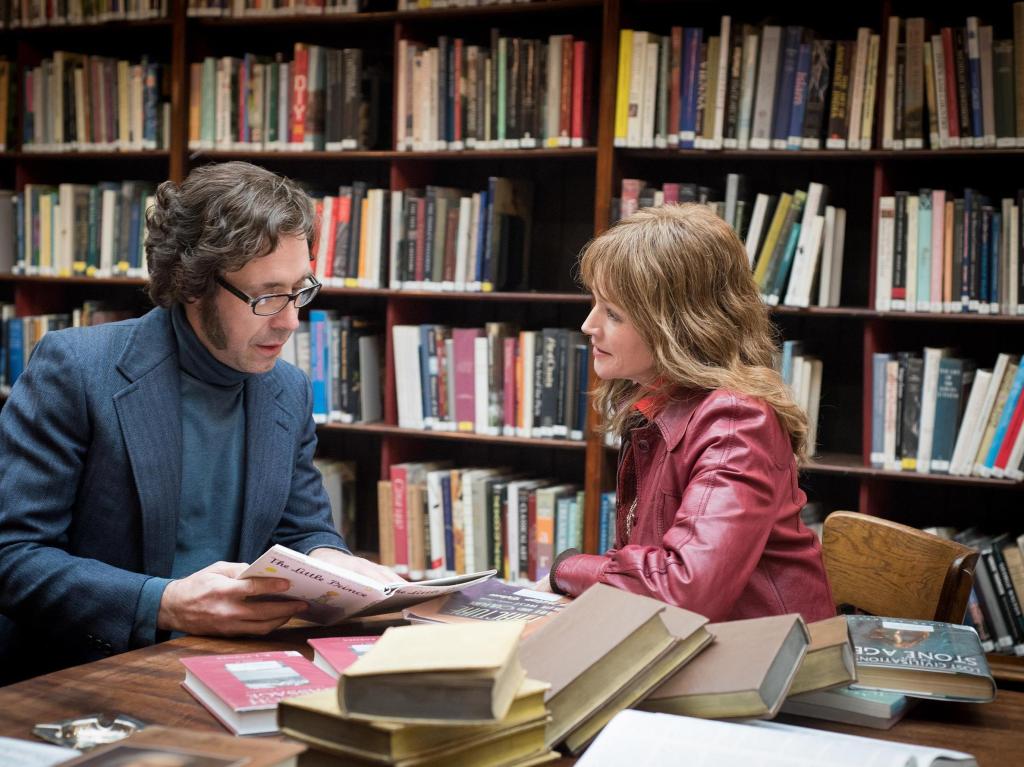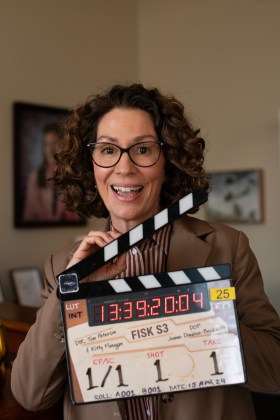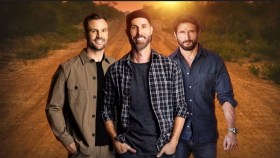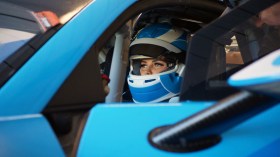Maxine Peake in Funny Cow. Image supplied.
Funny Cow is the story of a female stand-up comic in the brutal world of men’s working clubs in England’s north. Inspired in part by the life of glamorous comedian Marti Caine, Funny Cow struggles with a life of violent abuse but succeeds in her career at a time when male audiences only wanted women on stage if they were stripping or singing.
Funny Cow (the character is only known by her stage name) was written for Maxine Peake by actor and producer Tony Pitt, who also plays Funny Cow’s thuggish husband, Bob. Both writer and lead come from the kind of background depicted in the film. The idea was Peake’s, and Pitt wrote the screenplay in about two weeks; she reports crying when she first read it.
Maxine Peake is incredible in this. She’s a bundle of strength and vulnerability, ambition and dysfunction, self-awareness and isolation. The film is structured around a confessional cabaret-style performance delivered once Funny Cow has achieved fame, outlining in the wryest tones her thoughts about her life. Adrian Shergold, usually a TV director and cinematographer Tony Slater Ling include Peake in nearly every scene, creating the visual companion to her to camera soliloquies.
Funny Cow isn’t an easy watch. Small moments of magic realism, such as Funny Cow bumping into her younger self in the back alleys of her childhood are nicely placed to remind us of the defiantly absurdist spirit of the child in the red tights. Red dresses and shoes are used as a metaphor for Funny Cow’s warrior/performer core: Funny Calf presents her Future Me with a red balloon (referencing Albert Lamorisse’s Le Ballon Rouge, which Funny Cow later watches with middle class partner Angus, played by Paddy Considine).This spirit endures despite her isolation and the abuse heaped on her.
Highlights include the scenes with the unconquered and outspoken Funny Calf – an outrageously good turn by young Macy Shackleton. Watch out for her. My favourite is a silent slice of life scene when Funny Calf is sitting side by side with her mum, wearing a tea cosy on her face. It is almost an anti-moment, coming either before or after the dialogue you’d expect to hear. This scene encapsulates the tenor of the film. The mother’s resignation and her unspoken failure to protect her child, and her daughter’s survival instincts along with the birth of her emotionally avoidant defences are all there to see; we’re given a longish moment to register it all. You don’t get resolution, just acceptance, as expressed in the later coastal scene with Funny Cow and her mother (Lindsey Coulson). We witness her maternal ambivalence when her daughter manages to break away from her life of domestic violence.
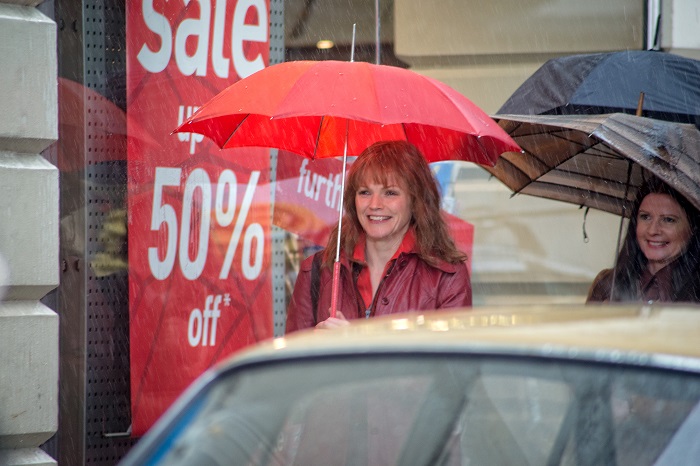
Alun Armstrong, bless him, is perfect as the lugubrious comic Lenny whose career is decaying. He embodies the effect of the brutality and harshness of the entertainment circuit. There’s no sentimentalising class or culture here. If you’ve forgotten how comedy once (and often still does) function to reinforce classist, racist, ableist and sexist attitudes, here’s a reminder. As a successful woman in a man’s world, Funny Cow is rejected by her brother and his family when she drops by in her red sports car.
Kevin Rowland from Dexys Midnight Runners makes an appearance in a bar scene, threatened by Funny Cow’s bullying husband, Bob. Paddy Considine as cultured Angus is the voice of the bewildered and under-appreciated gentle male. Stephen Graham does a double turn as Funny Cow’s father and brother, both toxic versions of masculinity. A special mention must be made of the original music by Richard Hawley, including a theme in the style of the 50s.
Funny Cow is original, authentic and vital. Now that Hannah Gadsby has made everyone think about women, abuse, comedy and storytelling, Funny Cow can also be seen as a timely contribution to that conversation.
Rating: 4 stars ★★★★Funny Cow
Maxine Peake
Director: Adrian Shergold
Writer: Tony Pitts
Cast: MAXINE PEAKE “FUNNY COW”, PADDY CONSIDINE, TONY PITTS, STEPHEN GRAHAM, ALUN ARMSTRONG
POW FILMS and MOVIEHOUSE ENTERTAINMENT present in association with HEAD
GEAR FILMS, METROL TECHNOLOGY and LIPSYNC
a LAUGHING GIRL PRODUCTION
Produced in association with GIZMO FILMS and VEXED PIXIE
an ADRIAN SHERGOLD film
Actors:
Director:
Format:
Country:
Release:
